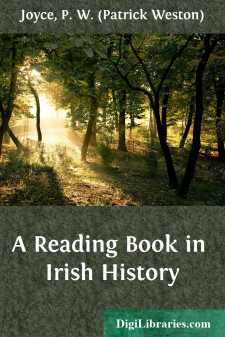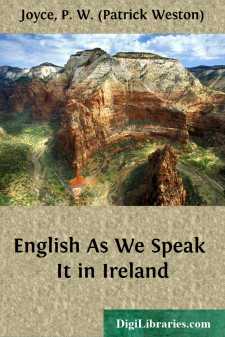Categories
- Antiques & Collectibles 13
- Architecture 36
- Art 48
- Bibles 22
- Biography & Autobiography 813
- Body, Mind & Spirit 142
- Business & Economics 28
- Children's Books 17
- Children's Fiction 14
- Computers 4
- Cooking 94
- Crafts & Hobbies 4
- Drama 346
- Education 46
- Family & Relationships 57
- Fiction 11829
- Games 19
- Gardening 17
- Health & Fitness 34
- History 1377
- House & Home 1
- Humor 147
- Juvenile Fiction 1873
- Juvenile Nonfiction 202
- Language Arts & Disciplines 88
- Law 16
- Literary Collections 686
- Literary Criticism 179
- Mathematics 13
- Medical 41
- Music 40
- Nature 179
- Non-Classifiable 1768
- Performing Arts 7
- Periodicals 1453
- Philosophy 64
- Photography 2
- Poetry 896
- Political Science 203
- Psychology 42
- Reference 154
- Religion 513
- Science 126
- Self-Help 84
- Social Science 81
- Sports & Recreation 34
- Study Aids 3
- Technology & Engineering 59
- Transportation 23
- Travel 463
- True Crime 29
A Reading Book in Irish History
Description:
Excerpt
I.
LEGENDS AND EARLY HISTORY.
In our books there are stories of five different races of people who made their way to Ireland in old times, with very exact accounts of their wanderings before their arrival, and of the battles they fought after landing. But these narratives cannot be depended on, for they are not real History but Legends, that is stories either wholly or partly . Of the five early races, the two last, who were called Dedannans and Milesians, were the most remarkable; and they are mixed up with most of the old Irish tales.
The Dedannans, coming from Greece, landed in Ireland; and having overcome the people they found there, became masters of the country. They had the name of being great ; and ancient Irish writings are full of tales of the marvellous of their skilled . They remained in possession for about two hundred years, till the Milesians came, as will now be related.
For many generations the Milesians, before their arrival in Ireland, journeyed from one part of Europe to another, seeking for some place of settlement. And becoming at length weary of this state of unrest, they their chief , who was a skilful , and bade him find out for them when they were to end their wanderings, and where they were to settle down. The druid, having thought the matter over for a while, told them that far out on the verge of the western sea was a lovely green island called Inisfail, or the Island of , which was to be their final home and resting-place. So they set out once more, and fared on from land to land, keeping the Isle of Destiny ever in mind, thinking of it by day and dreaming of it by night. At last they arrived in Spain, where they lived for a time. Here they were under the command of the renowned hero "Miled of Spain," or Milesius, from whom they came to be called Milesians.
Some old Irish writers say that while they dwelt in Spain, their chiefs, as they gazed over the waters northwards, one clear winter's night, from the top of a tower at the place now called Corunna, saw Inisfail like a dim white cloud on the sea, in the far distance. However this may be, the eight sons of Milesius, after their father's death—many centuries before the Christian era—set sail with a fleet, and soon arrived on the coast of Ireland. But before they could land, the Dedannans, by their spells, raised a furious tempest, which wrecked the fleet and drowned five of the brothers with most of their crews. The remaining three landed with their men; and having defeated the Dedannans in battle, they took possession of Ireland.
A fairy hill: an earthen mound at Highwood, near Lough Arrow, in Co. Sligo. A fairy moat is also figured at page , and a cairn at page .
When the Dedannans found that they were no longer able to hold the country, the legend tells us that they retired to secret dwellings under old forts, moats, , and beautiful green little hills: and they became fairies, and built themselves glorious palaces in their new underground abodes, all ablaze with light, and glittering with gems and gold.
From that period forward, till the time of the Danes, there were no more invasions; and the Milesian kings and people were left to make their own laws and manage the country as they thought best, without any interference from outside....



